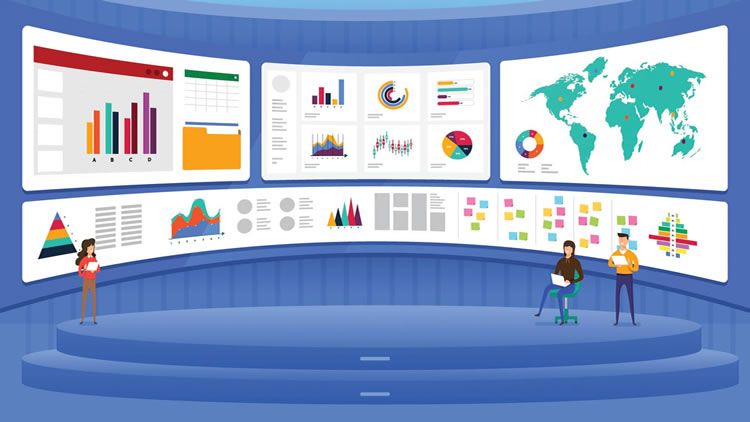Top 5 Event Industry Trends 2021
News & Trends
While the year 2020 put the event industry to a standstill, we all thought 2021 would return our life back to normal. Well, 2021 proved us wrong so far! We were dreaming of fully booked in-person events, full hotels, and a social life as we knew it.
Not only is Covid still on everybody’s mind, it is also still very much impacting social behavior and political decisions. It looks like we are heading towards a “new normal”. It’s not all bad though. We actually envision new business opportunities for visionary event planners and associations.
Here are the top 5 trends for 2021 and beyond.
1. Virtual Events will remain the No. 1 with most events becoming hybrid in 2022
The drastic and hectic shift to virtual events in 2020 has left the industry in a state of confusion. Many new virtual event software tools were introduced offering new ideas, and to be honest, causing wide-spread panic. We envision the new landscape of vendors to consolidate into two groups - generalists and specialists. The question is what will be each event planner’s best choice going forward?
With Covid loosing its grip on our society, on-site events will come back, no doubt. But consumers have evolved since 2020. They have embraced remote meetings, remote work, they will not all want to travel that much in the future, or spend the money to do it. What does this mean?
Most on-site events will have a virtual aspect to it. And it is not that difficult. Either attendees join the events in the conference hall, or they attend using their laptop - from home - and they will enjoy the same experience. Let’s say a panel discussion can be easily streamed to a screen with Q&A and polling.
Why is this good for the event industry? We anticipate events to get larger with a 10x ratio between on-site and virtual attendees. This increases the reach and revenue possibilities for the event industry.
2. There will be more smaller, recurring virtual events for special interest groups
We already saw that large conferences were canceled, replaced by small, and honestly hastily produced “Zoom meetings”. This type of improvising opened our eyes to actually turn this into something, only a virtual event can do: offer special-interest seminars, panel discussions that can be produced quickly in-house and offered at short notice. The internet is the ideal delivery system to target individualized attendees, really interested in the special topic.
Not only can the host guarantee a high level of engagement. These events can be a huge asset for associations who want to stand out from the crowd. The big question mark will be which event platform can provide event planners with an easy-to-use tool set at an affordable price.
3. Event Planners need to create an A- team for events going forward
This goes back to the aforementioned confusion in 2020 we all felt. It is not feasible to jump from one software platform to another, from one AV producer to the next. The learning curve, the ramp-up time will be too costly over time.
When you take recurring events into consideration, it only makes more sense to lock down one platform that can support the business requirements for all events. As technology innovators, we need to give you a reality check though. There is no one technology that does it all. It simply does not exist. And if it ever will, you will need an enterprise budget, a large IT team, and a PHD to use it. Since budgets will be lower, and teams will be smaller than ever, we recommend to follow the 80/20 rule. Get a platform that supports 80% of what you want, and tone down the exotic requirements to a more realistic level given your resources. It simply makes business sense.
4. Consumers’ expectations are rising - their patience is decreasing
Our studies show that virtual attendees have a short attention span. After 45 minutes people drop off sessions in exponential numbers. The phone rings, the dog needs to go out, or the child needs attention. In other words, attendees behave differently online than in-person. Gamification tools have not stopped this high abandonment rate, they have simply created a diversion.
To make matters more challenging, people get tired of the “same old, same old” when it gets to streaming an event. Zoom meetings offer very little flexibility, and a very limited experience online. Consumers have joined so many virtual events that look and feel identical, that they demand more.
This means for event planners to step up their game, to rethink marketing, branding, enhance the user experience online for their events. While gadgets and the latest fancy feature offered by some tools may be cool at the moment, you want your audience ultimately to get a good overall experience, delivered at each event.
Keep the A-team in mind! You will need a team you can trust - with a solid knowledge about online UX.
5. Prepare for growth through innovative technologies
Yes, prepare to grow your business. It will be happening in 2022. What does this mean? For more than 1 year our industry has just achieved to survive with shoe string budgets, small teams, and a renewed ability to improvise and adapt.
We envision that most associations will come out of their hibernation, with new ideas and a new spirit. Event planners need to get their organization and processes streamlined to support this growth in demand.
If Covid has told us one thing, it was that technology will be the catalyst to enable future growth. Remember the times, attendees had to use one tool to register, another to pay the fee, another one to check-in, and yet another to attend the virtual event? How about canceling the event registration, reviewing payments? Another tool, right? Remember event planners using a spreadsheet for BEO’s, communicating with venues?
The point, I am making is that piece mealing together tools will not help event planners be scalable, taking on more business without a huge overhead, and decreasing profits. Only thought-through technologies with a full set of features event planners need can offset the increasing operational burden. Food for thought.
Related
Address
WEEcommunicate.com
1231 Stirling Road , Ste 110
Dania Beach, FL 33004
USA








